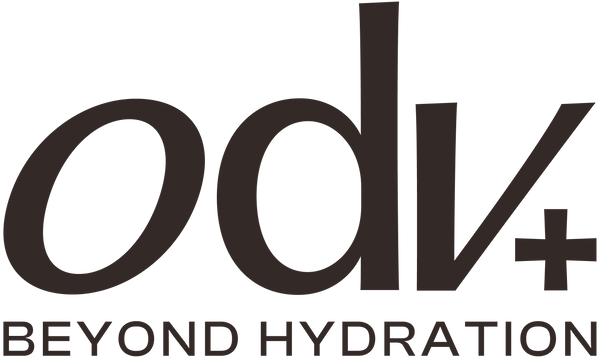
The Science of NAD
Share
The Science of NAD⁺: Why Cellular Energy Starts Here
Most of us are familiar with the obvious energy drainers: poor sleep, stress, skipping meals, or doing too much. But behind all of this is something far more foundational, and often overlooked, called NAD⁺.
NAD⁺ is a coenzyme found in every single cell of the body. It plays a central role in how your cells create energy, repair themselves, and maintain metabolic function. Without enough NAD⁺, your cells slow down, and so do you.
Let’s explore what NAD⁺ does, why it matters, and what happens when your levels decline.
What is NAD⁺?
NAD⁺ (nicotinamide adenine dinucleotide) is a coenzyme, which means it helps enzymes carry out critical chemical reactions in the body. Enzymes are like your body’s internal workers - and NAD⁺ is their key assistant.
In particular, NAD⁺ helps support:
-
Energy metabolism (how your cells turn food into energy)
-
Cellular repair, including DNA maintenance
-
Mitochondrial function, which powers every cell
- Sirtuin activation, which regulates inflammation and aging
But as we age - and especially when we experience stress - NAD⁺ levels decline significantly. By the time we reach our 40s or 50s, NAD⁺ may have dropped by more than 50% compared to youth [1].
This decline is linked to a range of symptoms:
- Fatigue, even after a full night’s sleep
- Brain fog or slower mental clarity
- Reduced exercise performance
- Longer recovery time
- Poor stress resilience
What Happens When NAD⁺ Is Replenished?
Research over the last decade has shown that restoring NAD⁺ levels can support a wide range of benefits, especially as we age.
1. Energy and Mitochondrial Health
Mitochondria are the energy-producing engines inside your cells. NAD⁺ is essential to keeping them running smoothly. Studies have shown that increasing NAD⁺ through supplementation (e.g. with nicotinamide riboside) can enhance mitochondrial function and physical performance - especially in aging adults or those with metabolic stress [[2]].
2. Brain Function and Cognitive Clarity
NAD⁺ is critical for protecting neurons and reducing oxidative stress in the brain. Research has linked NAD⁺ precursors to improved mental energy, focus, and long-term brain health [[3]].
3. Recovery and Cellular Repair
Whether from exercise, inflammation, or stress, your cells are constantly repairing themselves. NAD⁺ plays a key role in DNA repair enzymes and supports your body’s ability to bounce back. Low NAD⁺ may impair this recovery loop, especially as you get older [[4]].
Why Hydration and Absorption Matter
While supplementing with NAD⁺ precursors like nicotinamide riboside can support your levels, there’s another layer that’s often forgotten: cellular hydration.
For NAD⁺ to work, it needs to move efficiently through the body - and that depends on the fluid and electrolyte balance inside your cells.
Hydration supports:
-
Nutrient transport into cells
-
Optimal enzyme activity
- Metabolic efficiency and bioavailability
When the body is even mildly dehydrated, absorption and utilisation of nutrients like NAD⁺ can drop - which is why combining NAD⁺ support with proper hydration may enhance its benefits [[5]].
Final Takeaway
NAD⁺ is more than just a scientific buzzword. It’s a molecule that touches almost every process in your body —
- from how you create energy, to how clearly you think, to how resilient you feel in the face of stress.
If you’ve been feeling tired for no reason, struggling to concentrate, or just not recovering like you used to, it could be a signal that your cellular energy systems need support - and NAD⁺ might be a key part of the equation.
References
- Verdin, E. (2015). NAD⁺ in aging, metabolism, and neurodegeneration. Science, 350(6265), 1208–1213. https://doi.org/10.1126/science.aac4854
- Martens, C. R., et al. (2018). Chronic nicotinamide riboside supplementation elevates NAD⁺ and improves muscle mitochondrial health. Nature Communications, 9, 1286. https://doi.org/10.1038/s41467-018-03421-7
- Trammell, S. A. J., & Brenner, C. (2016). NAD⁺ pathway rejuvenation for neuroprotection. Cell Metabolism, 24(6), 795–806. https://doi.org/10.1016/j.cmet.2016.09.013
- Fang, E. F., et al. (2017). NAD⁺ in aging: molecular mechanisms and translational implications. Trends in Molecular Medicine, 23(10), 899–916. https://doi.org/10.1016/j.molmed.2017.08.001
- Jequier, E., & Constant, F. (2010). Water as an essential nutrient: the physiological basis of hydration. European Journal of Clinical Nutrition, 64(2), 115–123. https://doi.org/10.1038/ejcn.2009.111
